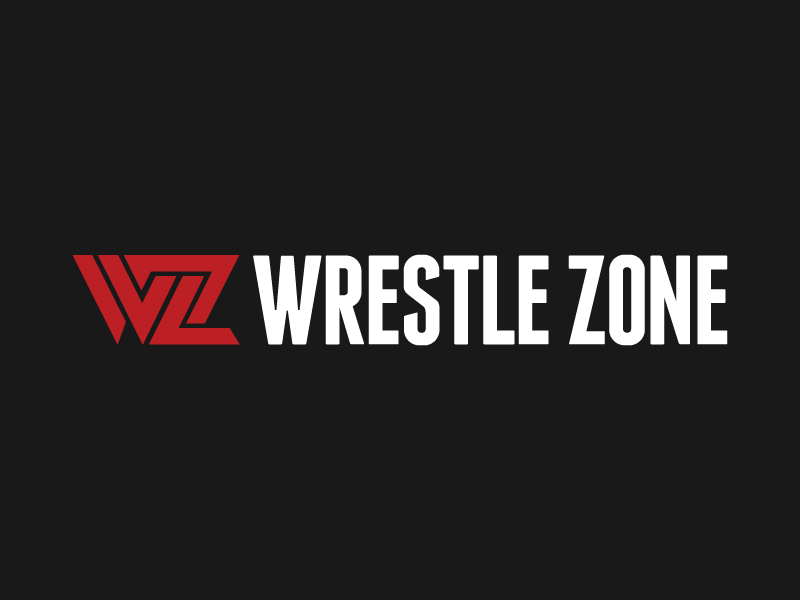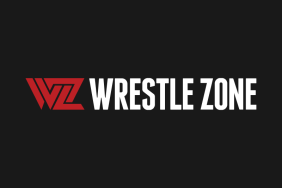Hello everybody, and welcome to another edition of Reading Between The Ropes. Wrestlers and promoters alike often lament the growing influence of the Internet on pro wrestling. More so, they lament the influence of the Internet in changing the way the fans view the business. The Internet is often criticised by insiders within the wrestling business for exposing the business and the secrets that workers and promoters try so desperately to keep sacred. The Internet is seen as one of the major factors in fans becoming more aware of insider terms. It was something I first touched upon in my summer 2005 column Bending Kayfabe – a new way of looking at how the business was being exposed. One of the most outspoken athletes against the exposing of the business is Ric Flair. It was a point Jonathan Brown raised recently when talking about the blurred line between wrestling personas and those who play such personas. But is Flair correct to blame the Internet for making fans aware of such insider terms? Is Flair right to single out the Internet as the main reason for the secrets of the business being exposed?
Flair isn’t the only one who looks scornfully towards the Internet. There are many other examples, too, and those who share Flair’s disdain for the ‘net are not subtle at displaying their displeasure. We’ve often seen overt outbursts from wrestlers on television, mocking those whose view of the business is refracted from their PC monitor. During Matt Hardy’s feud with Edge, Edge would often make references to Hardy’s strong Internet following, and how the use of the World Wide Web helped give birth to the feud by making fans knowledgeable about the issues between the two. Later, JBL has also made reference to Hardy’s Internet connections by advising Hardy to “go complain about it on the Internet.”
But it isn’t just on television that guys like Edge, Flair and JBL have lamented the growing influence of the Internet. Quite ironically, wrestlers have often used the Internet to berate it’s affect on fans. HHH has often bashed the Internet fan, making the assumption that they are usually about 12 or 13 years of age and are, well, nerdy. Of course, this isn’t true, but HHH felt the need to vent his frustration, using the Internet to do so. JBL has also famously called Internet fans “gay” and, again, made reference the young age that somehow seems to be the assumed demographic of such fans. I question the logic of using the Internet as a means to berate the Internet and Internet fans, but those wrestlers have chosen to do so. It also proves that there is a begrudging acceptance from these wrestlers that the Internet is a powerful tool in the world of professional wrestling today.
So, are these athletes correct in holding the Internet responsible for the exposé of their business? Well… quite simply, no.
In the year 2000, the WWE starting to publish books on it’s top athletes. Guys like The Rock, Stone Cold Steve Austin and Mick Foley had their stories told in a series of publications which would tell all about their experiences within the business. Later, guys like Kurt Angle, Hulk Hogan and even Ric Flair and Edge would release books. For the most part, it’s safe to say that such books are aimed at, well, wrestling fans. So, one has to wonder just how telling stories about locker room incidents, booking decisions, road stories and the like helps keep the business a secret. All of the aforementioned publications are littered with insider terms and stories. These books taught me, someone who views the Internet regularly, things I would never have learned from browsing the latest wrestling news sites. Ric Flair may chastise the Internet for exposing the business, but when you release a book – endorsed by the WWE – giving detailed insights in to the on-goings of the wrestling industry, you’ve only got yourself to blame if you make your fan-base more knowledgeable. These books are read by fans who attend shows and order PPVs, the people who actually care about what they see on their TV screen. I challenge anyone to claim that reading a wrestling (auto)biography didn’t expose something about the business to them, or make them look at someone/something wrestling related differently the next time they saw them/it on television.
The WWE didn’t stop at books, either. The Tough Enough series detailed wanabee wrestlers attempts at becoming the next WWE superstar. The reality show was fronted by wrestler Al Snow, but often other members of the WWE roster would stop by and help train or view the wanabees progress. The key thing is that this series was an official WWE production. It was the WWE’s own project. So, while Vince is sitting there up in his Titan offices shaking his head at a news site telling fans of the latest injuries, hirings and firings, he picks up the phone and pitches an idea about making a wrestling reality show? And yet the Internet is the one that exposes the business? The WWE makes no secret of the fact that these guys are professional trained athletes, so it became of no surprise when the reality show aired footage of wrestlers showing these hopefuls how to fall. However, the series also showed these guys as human beings, not as a television character, meaning that from the very moment we saw the Tough Enough victor debut on television, we would think back to all their emotional outbursts during the show, and their struggles throughout the series. But it isn’t just the contestants that are exposed as everyday human beings. The wrestlers who trained and oversaw their progress on the show or also broke their television personas to do so. If Papa Shango or Nailz appeared on Tough Enough as either a trainer or a contestant, I know I wouldn’t have looked at them in the same way. The bottom line is, Tough Enough was another step in letting the casual fan have his ear closer to the ground when it comes to the wrestling business.
DVDs of the top WWE superstars are often produced nowadays. These DVDs also divulge information about your favourite WWE superstar that otherwise you may not have known. For example, if on the Chris Benoit DVD you see Chris Jericho or Kurt Angle singing his praises when on television they’re supposed to be enemies, it can’t help but make it harder for one to suspend their disbelief when they watch WWE programming. Think back to your childhood. When I was a kid, I would have been shocked to see a programme on Hulk Hogan where Ted DiBiase or Sgt. Slaughter are interviewed talking about how great a worker he was. On television the Ultimate Warrior was portrayed as nothing but a hero, so why release a DVD contradicting how he was portrayed by the WWE? In doing so, the WWE almost immediately separates what we see on television from what actually takes place in reality. It, metaphorically, takes a step back and takes a snapshot of the business, revealing it to you from another viewpoint. During the Bret Hart DVD, Bret talks about how becoming a “heel” allowed him to take control of his matches because he got to dictate the pace and work the kind of match he wanted to work. He also speaks about his ability in his early years to “sell” effectively. How can the WWE berate the Internet for exposing the business when they produce such DVDs full of insider terms and exposés of the business? DVDs like the Monday Night War and the Rise and Fall of ECW quite literally expose the business, because they document financial scenarios, economics, legal battles and so forth.
The WWE isn’t afraid to use the Internet themselves to expose the business. Perhaps it is important here to define the previous use of the world Internet as one which refers to wrestling news/rumour sites, not the WWE’s official website, for which the scorn that men like Flair and JBL vent is directed at the former, not the latter. WWE.com has become very familiar with breaking kayfabe and helping expose the business. Following Wrestlemania X-8, WWE.com conducted an interview with Kane and Kurt Angle regarding their match at the PPV. The two then proceeded to reveal how they were pleased with their match, except for the finish. I remember it like it was yesterday. The headline read: “Finish Aside, Angle and Kane Pleased With Match.” When you have two guys talking about how they had a great match but screwed up the finish, it does not take a genius to grasp the predetermined nature of the wrestling industry. This is just one of many examples of WWE.com exposing the business. Following the death of Eddie Guerrero, WWE.com posted a video of Vince Mcmahon’s drug meeting. It isn’t often a fan gets to see what goes on inside the locker room when something isn’t being recorded for Raw or Smackdown!. However, on this occasion we got to see a behind the scenes look at a major meeting regarding the business. WWE.com recently congratulated Jean Paul Levesque and Stephanie Mcmahon on the news that a baby was on the way for the married couple. Who’s Jean Paul Levesque? HHH, you say? Didn’t he divorce Stephanie on WWE television?
I find it very hypocritical of men like Ric Flair and Vince Mcmahon to lament the Internet for exposing the business when, in my eyes, there are many other factors which have also led to the industry being exposed. Sure, WWE.com may be reacting to other Internet wrestling news sites and it may, itself, be an Internet site… but it’s the WWE’s Internet site. It’s their baby. They choose to have such a site, and they choose the content. Rumours are flying around that the WWE wants to make WWE.com the definitive news site and beat other news sites to the punch, meaning that in the future we can expect even more exposing of the business over on WWE.com. Once again, the WWE is biting at the bate from other wrestling news sites, and in doing so, they’re further exposing the business – much more so than any other wrestling news site. On other sites rumours are… well, rumours, but when WWE.com posts news it’s official, meaning room for dismissal is removed.
The Internet may have started the trend of insider terms becoming common knowledge amongst wrestling fans, but the WWE is certainly finishing it. DVDs and book releases, the Tough Enough series, and their very own official website are acquainting fans with stories and terms that even the wrestling rumour sites would never have been able to reveal. What’s more so, if these sites had revealed such stories, nobody could effectively confirm their truth. They would be consigned to the “rumour” basket for the rest of time. What the WWE is doing is legitimising the terms that the ‘net initially introduced. They are confirming the rumour sites claims and they’re validating it’s testimonies. But perhaps what makes the WWE and it’s most outspoken anti-Internet stars most undeserving of our sympathy is the fact that these guys are trying to cash in on the growing knowledge of fans. Releasing exposé books and DVDs about guys like Flair indicate WWE’s desire to take advantage of era of the “knowledgeable” fan. While I don’t see a problem with the release of such merchandise, I do see a problem with the double standards of men like Mcmahon and Flair who one minute blame the Internet for it’s use of the words “heel” and “babyface” and the next minute use such phrases in books or on DVD. You can’t have your cake and eat it guys.
Either the WWE carries on making the Internet a scape-goat and forfeits the right to release such merchandise without being labelled as hypocrites, or they discontinue their policies to one minute discredit know-it-all fans and the next minute take their hard-earned cash.
Until next time,
Mitchell L. Gadd








